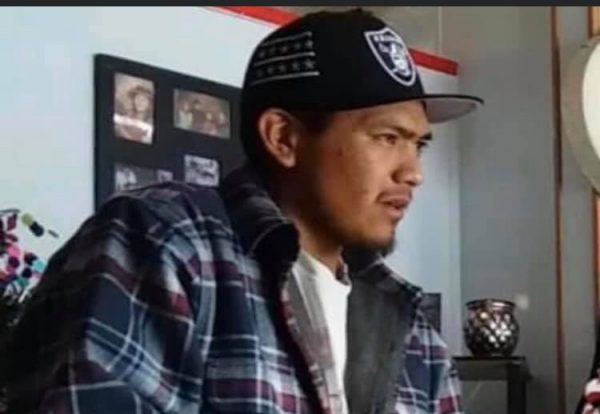
- Details
- By Native News Online Staff
FORT HALL, Idaho — The human remains discovered in September 2019 on the Fort Hall Indian Reservation have been identified as being those of Austin Pevo, who went missing in February 2018.
The Shoshone-Bannock tribes released a press release on Monday that the FBI officially confirmed that Pevo's remains were identified.
Pevo, 23, was reported missing by his mother in February of 2018 to the Pocatello Police Department. The missing case was investigated by the Pocatello and Fort Hall police and the FBI.
In September 2019, new information was provided to the Fort Hall Police and FBI Special Agents that led to a location on the Fort Hall Reservation where human remains were found.
After further forensic investigation by the FBI, it was confirmed to be the remains of Austin Pevo.
Pevo, a tribe citizen of the Eastern Shoshone, was raised by his mother in a traditional cultural home, according to a Shoshone-Bannock tribal spokesperson.
The family have been notified. No further information has been released to the Tribes on funeral arrangements.
There was no further official information from the FBI or U.S. Attorney’s Office in Boise, Idaho as to the cause of death.
More Stories Like This
Native News Weekly (August 25, 2024): D.C. BriefsUS Presidents in Their Own Words Concerning American Indians
Deb Haaland Talks Youth, Jobs and Opportunity in Governor Bid
NABS Brings Oral History Project to New Mexico for 17th Stop
2026 Native American 40 Under 40 Class Announced
Help us defend tribal sovereignty.
At Native News Online, our mission is rooted in telling the stories that strengthen sovereignty and uplift Indigenous voices — not just at year’s end, but every single day.
Because of your generosity last year, we were able to keep our reporters on the ground in tribal communities, at national gatherings and in the halls of Congress — covering the issues that matter most to Indian Country: sovereignty, culture, education, health and economic opportunity.
That support sustained us through a tough year in 2025. Now, as we look to the year ahead, we need your help right now to ensure warrior journalism remains strong — reporting that defends tribal sovereignty, amplifies Native truth, and holds power accountable.
 The stakes couldn't be higher. Your support keeps Native voices heard, Native stories told and Native sovereignty defended.
The stakes couldn't be higher. Your support keeps Native voices heard, Native stories told and Native sovereignty defended.
Stand with Warrior Journalism today.
Levi Rickert (Potawatomi), Editor & Publisher

